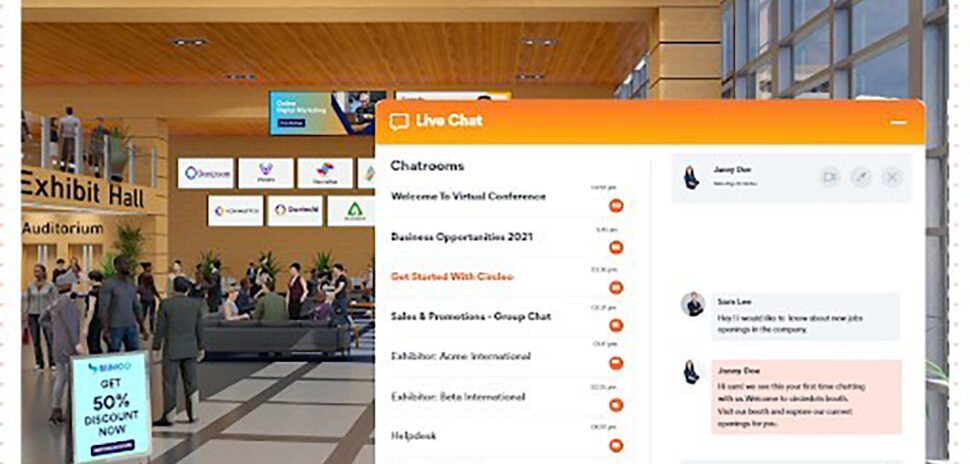Prior to the pandemic, “there were several companies planning significant expansions within Lancaster,” says Lancaster Economic Development Director Shane Shepard. “We were shortlisted on several manufacturing deals; however, the pandemic has put that on a temporary hold.”
Still, Shepard is seeing a greater amount of optimism, even in the current uncertainty. “There will be new opportunities,” he says. “The business community creates and reinvents.”
It’s in their nature, Shepard says. Leaders in business and entrepreneurs “tend to be optimistic and creative, finding a way to make profits even in difficult times.” He references the old Wall Street adage: “Bulls make money, bears make money, pigs get slaughtered.”
A crisis is a chance to be innovative and “to be better,” the economic development leader says. “We’ve always come out of a crisis much better and stronger than before the crises occurred.”
Shepard discusses the impact of the COVID-19 pandemic on corporate relocations in the Dallas region, as well as opportunities “yet to be discovered” in the commercial real estate landscape in our Q&A. There are reasons for optimism, he says.
 What types of companies are a good fit for Lancaster?
What types of companies are a good fit for Lancaster?
The City of Lancaster seeks to attract companies with higher-paying technical and professional jobs that complement the current resident workforce. In 2018, we conducted a market analysis that evaluated categories such as workforce skills, available training in the region, current companies in the area, and a number of other factors. The study found that Lancaster is ideal for artificial intelligence and advanced manufacturing, cold storage, food processing, motor vehicle parts manufacturing, and data centers. Lancaster is only 50 percent built-out, which provides 15 square miles of space to accommodate development needs.
Do companies find Lancaster as part of a relocation or site acquisition?
Half of our recruits come through strategic partnerships with the Governor’s Office and the Dallas Regional Chamber. In part due to the pandemic, critical gaps have been identified in the supply chain and companies are seeking strategically located cities such as Lancaster.
Has the pandemic changed the process?
Lancaster’s economic development team has had to modify some of our practices. More efforts are completed virtually or remotely. We reach out more to companies through the Internet than before and have zoom meetings and site visits with them. Interestingly, there’s been an increase in unsolicited requests for information from outside firms during the pandemic than there was before.
Is the pandemic changing the role of the state or incentives in attracting new businesses to Texas?
There have been no evident changes in the sense of attracting new businesses. We shifted to ensuring current businesses are connected to available resources and that employees maintain jobs. Economic contacted businesses within the community to connect them with grant and loan resources through Dallas County and the Small Business Administration. The United States Treasury reported that Lancaster businesses received between $10 million and $20 million for the purpose of retaining about 1,545 jobs.
Where do you see the most opportunities right now? In what sectors do you anticipate growth?
It’s difficult to pinpoint sectors as we are navigating through a significant amount of change as it pertains to the pandemic. People have become confident with the convenience of e-commerce and expecting their delivery. There are specific sectors that are located within the City of Lancaster that provide a sense of growth. Sectors such as logistics, medical manufacturing and supply, food manufacturing, and artificial intelligence are sectors that meet current needs and will continue to grow.
How is your city responding to the challenges your business community is facing because of the pandemic?
The City of Lancaster was proactive with building a strong communication platform with businesses within the city to offer support and assistance before and during the span of the pandemic. The economic development staff has made direct contact with more than 600 businesses to provide solutions and detailed information on government resources available through federal and county partners that assist with the economic effects of the pandemic. Communication and support with businesses within our community has been continuous.
A version of this story first published in the Summer 2020 edition of the Dallas-Fort Worth Real Estate Review.
Sandra Engelland contributed to this report.
Read more on how DFW is a place for the future from these commercial real estate experts:
‘North Texas Has a Lot Working in Our Favor’
Mike Berry, President, Hillwood
‘It Is Reasonable To Expect That the Area Will Fare Especially Well’
Ray Perryman, The Perryman Group
Site Selection Group Partner Sums Up the DFW Commercial Real Estate Market in 8 Words
Lee M. Wagner, Partner, Corporate Real Estate Services, Site Selection Group
Inquiries by economic development agencies “are up by a significant multiple over this period last year”
Joel Pustmueller, Managing Director, Brokerage, JLL
‘We’re Seeing More Companies Investing in Their Existing Footprint’
Beth Bowman, President and CEO of Irving Economic Development Partnership
‘We Believe Cities Like Frisco Will Benefit by the Return of Growth To the Suburbs’
Jason Ford, Economic Developer and Vice President, Frisco EDC
The Future Is Bright for Dallas-Fort Worth Corporate Relocations and Consolidations
Jeff Ellerman, Vice Chairman, CBRE
Read the digital edition of Dallas Innovates’ sister publication, the Real Estate Review, on Issuu.
Sign up for the digital alert here.
![]()
Get on the list.
Dallas Innovates, every day.
Sign up to keep your eye on what’s new and next in Dallas-Fort Worth, every day.




























